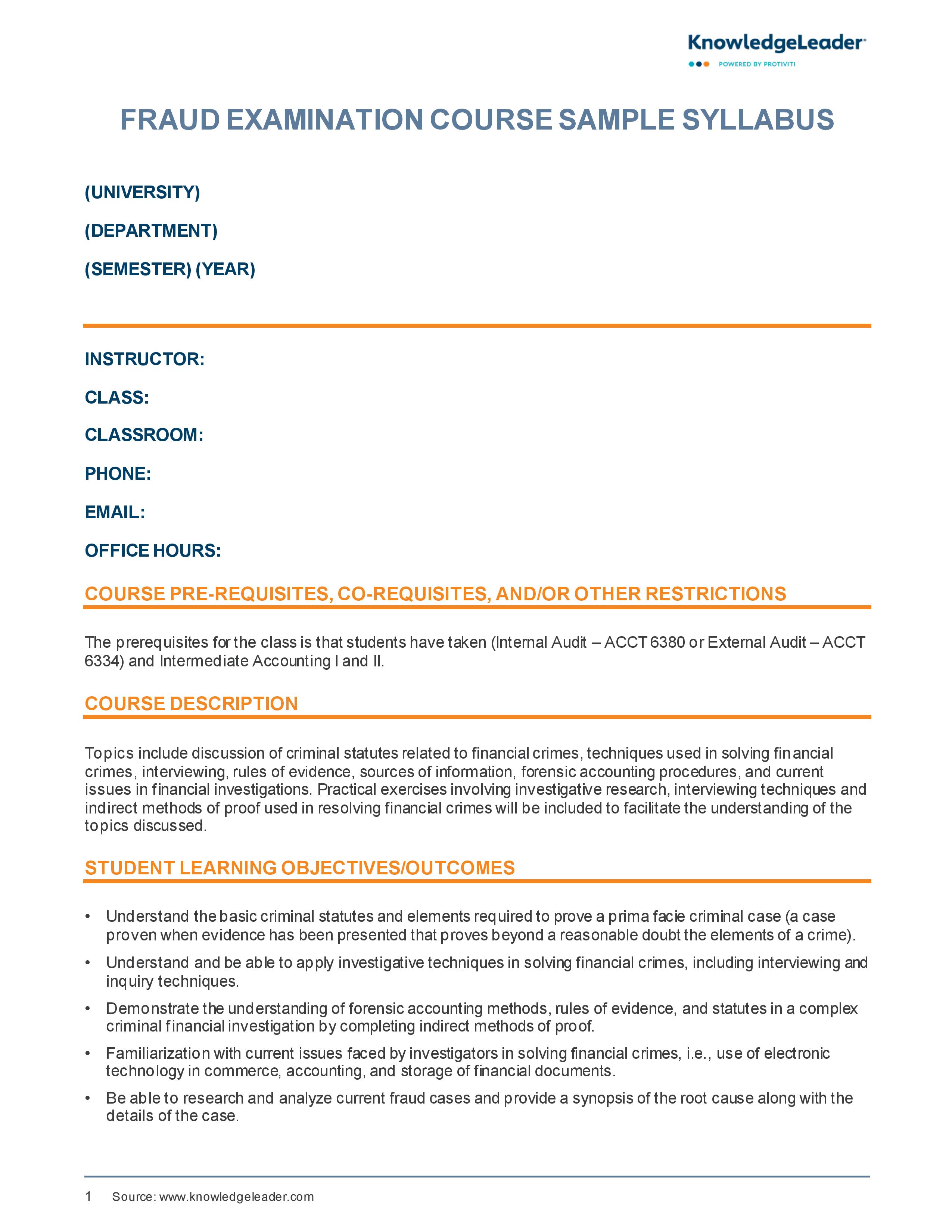Fraud Examination Syllabus

Thanks to Mark Salamasick at the University of Texas at Dallas for contributing this syllabus.
Topics include discussion of criminal statutes related to financial crimes, techniques used in solving financial crimes, interviewing, rules of evidence, sources of information, forensic accounting procedures and current issues in financial investigations.
Student Learning Objectives/Outcomes:
- Understand the basic criminal statutes and elements required to prove a prima facie criminal case (a case proven when evidence has been presented that proves beyond a reasonable doubt the elements of a crime).
- Understand and be able to apply investigative techniques in solving financial crimes, including interviewing and inquiry techniques.
- Demonstrate the understanding of forensic accounting methods, rules of evidence and statutes in a complex criminal financial investigation by completing indirect methods of proof.
- Familiarization with current issues faced by investigators in solving financial crimes, i.e., use of electronic technology in commerce, accounting and storage of financial documents.
- Be able to research and analyze current fraud cases and provide a synopsis of the root cause along with the details of the case.
- Provide coverage in the course and topics to enable students to take and pass the Certified Fraud Examiners (CFE) certification.